Greed (1924)
Be warned, spoilers ABOUND in the text below.
 |
| Gibson Gowland as McTeague |
McTeague (Gibson Gowland) is a simple man who works as a miner, without any ambitions to become something greater. He is a gentle man with a fondness for birds, but any perceived or real slight made at his expense causes him to become enraged and frighteningly destructive.
He is pushed by his mother to become a dentist, and leaves the mines behind to become the apprentice of Painless Potter. Mother McTeague dies before she can see her son set up his own successful business, but within just a few years, Mac has established himself as a reputable dentist. Mac’s close friend Marcus (Jean Hersholt) introduces Macto Trina (ZaSu Pitts), Marcus’ cousin and the object of his affection. When Trina visits Mac to have a broken tooth fixed, Mac falls in love with her, succumbing to her fragrance and beauty, daring to kiss her while she is unconscious in his chair.
 |
| Mac kisses Trina while she is unconscious |
Trina is at first hesitant and unsure how she feels about Mac. She decides that she is in love with him and on the night of their engagement, it is discovered that Trina has won a lottery of $5,000 after buying a ticket from Maria, the spooky wife of the junk collector Zerkow. The news of their new-found wealth and engagement causes Marcus’ blood to boil, and his resentment towards Mac intensifies.
 |
| Marcus' resentment grows |
 |
| Trina cowers in fear... |
 |
| ...before collapsing on the bed. |
 |
| Trina wrings her hands and keeps her money close. |
Soon the McTeagues are slumming it, as Trina refuses to touch any of the $5,000 she has saved. Machas difficulty finding and keeping work and Trina continues to hide money from him. Eventually, Mac snaps. Fueled by whisky, he threatens and dominates Trina, much to her perverse enjoyment. He quickly becomes dependent on alcohol, and when Maria and Zerkow’s shack become available, Trina demands that they move into it.
Eventually, Mac steals the money that Trina has hidden around the shack, without her knowledge, and leaves under he pretense that he is going to go fishing and sell his beloved canaries for extra cash. Trina is excited at the the thought of having more money around the house, but once she realizes what Mac has done, her desperation drives her out into the cold where she suffers severe frostbite.
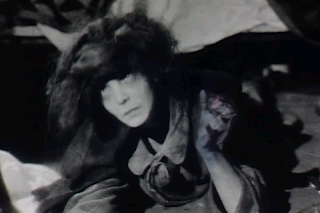 |
| Frostbit and slumming it. |
Mac surprises her one night, begging her for money and a bed. Trina will have nothing to do with him and turns him away, vowing that she will never forgive him for stealing her money.
 |
| Trina caught off-guard by Mac's night visit. |
 |
| Trina is murdered off screen. |
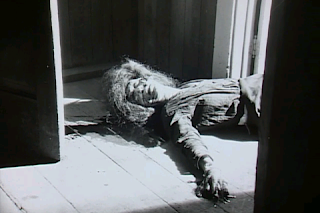 |
| The horrifying result. |
 |
| Marcus sets out across Death Valley. |
 |
| Marcus catches Mac off-guard... |
 |
| ...but loses the battle. |
 |
| Mac's realization. |
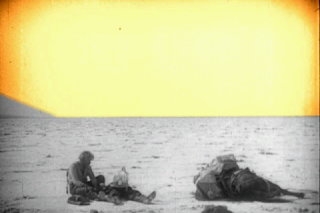 |
| Mac's fate. |
Erich von Stroheim was notorious for being the man you love to hate. That hate extended beyond the public when Metro-Goldwyn joined forces with Louis B. Mayer in 1924. The studio was flabbergasted when Stroheim presented them with his 9.5-hour masterpiece. After much chiding, Stroheim eventually had the film cut down to four hours, intended to be presented in two parts with an intermission/meal provided in between. Unsatisfied, the studio slashed the film further, turning it into the “cadaver” which Stroheim believed it to be.
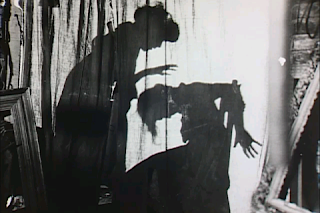 |
| Trina discovers Maria's murder |
 |
| Mr. Grannis and Miss Baker |
The Maître
 |
| Erich von Stroheim |
Stroheim wanted to bring gritty, unnerving, ugly realism to the screen -- a fete which he, without question, absolutely accomplished. From the slum which poverty-stricken Mac and Trina inhabit, to the vast landscape of Death Valley (filmed on location), to Mac and Marcus’ fatal battle, the audience is able to become engrossed in and involved with the story without having to suspend disbelief.
With this realism, Stroheim also provides brilliant on-screen metaphors to drive his point and the story home further. When Trina and Mac discover that Mac can no longer practice dentistry, their shock and dismay is felt at the exact moment that Mac’s beloved canaries are attacked by the cat attempting to breach their cage.
Another brilliant trick involves Stroheim using Mac and Trina’s wedding portrait as a reflection of the state of their marriage. As the two become more and more estranged, their wedding portrait is slowly torn in two, until it is torn completely in half when Mac comes begging to Trina.
There are also several recurring transitional scenes, involving hands hovering over piles of glimmering gold. The insertion of these scenes is reminiscent of Griffith's use of Eternal Motherhood rocking a cradle in "Intolerance" (which Stroheim had a bit part in).
Stroheim’s greatest strength is his effective use of close-ups and uniquely framed shots. Just as film noir directors in the ‘40s would use strange film angels to unsettle audiences, so to does Stroheim. His well-composed shots offer the audience a unique perspective of the situation, while still unsettling and unnerving them. Even the supplemental still photographs used in the reconstructed version are very well composed and add much to the film on their own.
Stroheim’s use of hand-tinting in specific scenes and elements within a scene is also very effective. Trina’s gold teeth, Mac’s golden dentist tooth, and (in the lost footage) Mr. Grannis and Miss Baker’s fully-colored pond scene all shine brilliantly in contrast to the rest of the film. And the bloody coins that sit just inches away from MacTeague in the final moments of the film are a brilliant embodiment of what greed breeds.
Of course, the work of ZaSu Pitts, Gibson Gowland, and Jean Hersholt cannot be ignored or overstated. Each of their contributions add so much to their respective characters and the film as a whole. Pitts is brilliantly transformed from a rather shy, beautiful young woman into a haunted, stingy, vindictive miser. Her face becomes sullen and aged, and her hair seems to envelope her. Once her money is stolen and her hair is let down, she is reduced to a wild, primitive woman, happy to sleep naked atop her fortune.
Hersholt’s pleasant face is contorted into a sour, hateful expression as his desire for revenge grows greater and greater. His savagery and intensity displayed in the Death Valley sequence must not go unnoticed, especially considering the fact that he gave so much for the performance (he was hospitalized after he lost 28 pounds while shooting on location). He too becomes a primitive creature, hellbent on only achieving one thing -- capturing Mac.
Gowland’s transformation of Mac from the simple, gentle man into a vengeful, greedy beast is, perhaps, most impressive. To turn a man who was too shy to even kiss a woman into one who would kill that same woman with his bare hands is an enormous task, and one which Gowland successfully performs. And although Mac is reduced to a savage beast at the end, he retains a bit of humanity, a fact which is beautifully demonstrated by his gentle handling of his canary and his desire to set it free. His realization of his fate is subtle, but powerful.
We may lament the loss of the original cut of “Greed,” but with the TCM reconstructed version we are given a glimpse at what was. Even in its abbreviated form, “Greed” remains a powerful, influential work.
Speaking of Hollywood, Erich von Stroheim once said, "If you live in France, for instance, and you have written one good book, or painted one good picture, or directed one outstanding film 50 years ago and nothing else since, you are still recognized and honored accordingly. People take their hats off to you and call you ‘maître.’ They do not forget. In Hollywood—in Hollywood, you're as good as your last picture. If you didn't have one in production within the last three months, you're forgotten, no matter what you have achieved ere this." “Greed” may not have been his last picture, but it certainly is an outstanding film -- a work that has earned Stroheim the title of maître, even if only subsequent generations have had the ability to recognize him as one.






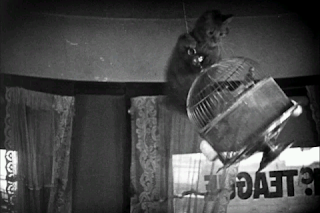

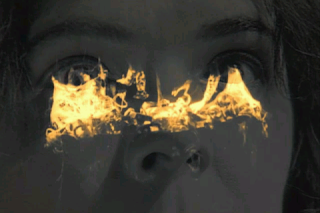






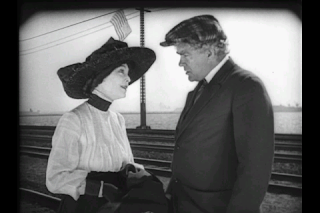




No comments:
Post a Comment